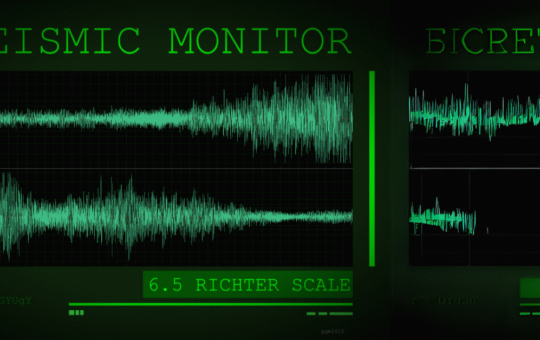
Level 4 Diploma in Advanced Process Safety Management (PSM)
- Advanced Expertise: Learn complex risk management techniques and safety systems.
- Industry-Specific Knowledge: Tailored for oil, gas, chemical, and petrochemical industries.
- Career Advancement: A globally recognized qualification for senior safety and risk management roles.
- Compliance and Best Practices: Understand and implement international safety regulations and standards.
- Hands-On Learning: Apply your knowledge through case studies and practical exercises.
- Understand the core principles and concepts of Process Safety Management (PSM).
- Develop and implement process safety systems to manage hazards in industrial operations.
- Conduct risk assessments and implement appropriate hazard controls.
- Apply advanced safety protocols to prevent process incidents and accidents.
- Ensure compliance with international standards, regulations, and best practices in process safety.
- Integrate safety measures into process design, operations, and maintenance activities.
- Introduction to Process Safety Management
- History and evolution of PSM.
- The importance of PSM in risk reduction and accident prevention.
- Regulatory Standards and Compliance
- Overview of international safety standards (e.g., OSHA, NFPA, ISO 45001).
- Understanding safety regulations and their application in different industries.
- Hazard Identification and Risk Assessment
- Techniques for identifying potential hazards in industrial operations.
- Conducting and interpreting qualitative and quantitative risk assessments.
- Safety Systems and Process Design
- Designing safety systems to prevent and mitigate process risks.
- Engineering controls, safety barriers, and emergency shutdown systems.
- Advanced Safety Management Practices
- Advanced risk management strategies, including layer of protection analysis (LOPA) and fault tree analysis (FTA).
- Human factors and safety culture in process industries.
- Process Hazard Analysis (PHA) Techniques
- Methods such as HAZOP (Hazard and Operability Study), FMEA (Failure Modes and Effects Analysis), and Fault Tree Analysis.
- Conducting and documenting safety analysis sessions.
- Incident Investigation and Reporting
- Techniques for investigating and analyzing process incidents.
- Root cause analysis and corrective actions.
- PSM Implementation and Safety Audits
- Implementing and maintaining a process safety management system.
- Conducting safety audits and continuous improvement.
- Case Studies and Practical Applications
- Real-world examples of successful and failed safety management implementations.
- Problem-solving exercises based on actual process safety incidents.
- Process Safety Manager
- Risk Management Consultant
- Safety Engineer
- Industrial Safety Advisor
- HSE (Health, Safety, and Environment) Director
- Industry-Specific Focus: Training tailored to the needs of high-risk industries such as oil, gas, and chemicals.
- Experienced Trainers: Learn from experts with years of experience in process safety and risk management.
- Practical Approach: Focus on hands-on skills and real-world applications.
- International Recognition: Aligned with global process safety standards and certifications.
- Flexible Learning: Designed to fit the schedules of working professionals.
Study Units
- Introduction to Process Safety Management
- History and evolution of PSM.
- The importance of PSM in risk reduction and accident prevention.
- Regulatory Standards and Compliance
- Overview of international safety standards (e.g., OSHA, NFPA, ISO 45001).
- Understanding safety regulations and their application in different industries.
- Hazard Identification and Risk Assessment
- Techniques for identifying potential hazards in industrial operations.
- Conducting and interpreting qualitative and quantitative risk assessments.
- Safety Systems and Process Design
- Designing safety systems to prevent and mitigate process risks.
- Engineering controls, safety barriers, and emergency shutdown systems.
- Advanced Safety Management Practices
- Advanced risk management strategies, including layer of protection analysis (LOPA) and fault tree analysis (FTA).
- Human factors and safety culture in process industries.
- Process Hazard Analysis (PHA) Techniques
- Methods such as HAZOP (Hazard and Operability Study), FMEA (Failure Modes and Effects Analysis), and Fault Tree Analysis.
- Conducting and documenting safety analysis sessions.
- Incident Investigation and Reporting
- Techniques for investigating and analyzing process incidents.
- Root cause analysis and corrective actions.
- PSM Implementation and Safety Audits
- Implementing and maintaining a process safety management system.
- Conducting safety audits and continuous improvement.
- Case Studies and Practical Applications
- Real-world examples of successful and failed safety management implementations.
- Problem-solving exercises based on actual process safety incidents.
Upon completion of this diploma, learners will be able to:
- Understand the core principles and concepts of Process Safety Management (PSM).
- Develop and implement process safety systems to manage hazards in industrial operations.
- Conduct risk assessments and implement appropriate hazard controls.
- Apply advanced safety protocols to prevent process incidents and accidents.
- Ensure compliance with international standards, regulations, and best practices in process safety.
- Integrate safety measures into process design, operations, and maintenance activities.
The Level 4 Diploma in Advanced Process Safety Management (PSM) is ideal for professionals who are responsible for safety and risk management in industrial environments, particularly in high-risk sectors such as oil, gas, and chemicals. This course is suited for:
Process Safety Managers
Individuals responsible for overseeing and implementing process safety management systems within organizations, aiming to deepen their understanding of advanced safety protocols and risk assessment techniques.
Risk Management Consultants
Professionals advising companies on risk mitigation strategies and seeking to enhance their expertise in identifying and managing process hazards.
Safety Engineers
Engineers focused on developing and maintaining safety systems and procedures within industrial settings, particularly in sectors with complex risk profiles.
Industrial Safety Advisors
Advisors working within manufacturing, oil, gas, or chemical industries, looking to strengthen their knowledge in process safety practices, hazard analysis, and compliance with international standards.
HSE Directors
Senior professionals responsible for overseeing health, safety, and environmental policies in high-risk industries, aiming to implement comprehensive safety systems and ensure compliance with global regulations.
Health, Safety, and Environmental Professionals
Individuals in various HSE roles looking to advance their skills in process safety management and contribute to the overall safety culture of their organizations.
Operations and Maintenance Managers
Professionals in charge of operational activities, responsible for maintaining safety standards and mitigating process risks in production and processing environments.
Our assessment process is designed to ensure every learner achieves the required level of knowledge, skills, and understanding outlined in each course unit.
Purpose of Assessment
Assessment helps measure how well a learner has met the learning outcomes. It ensures consistency, quality, and fairness across all learners.
What Learners Need to Do
Learners must provide clear evidence that shows they have met all the learning outcomes and assessment criteria for each unit. This evidence can take different forms depending on the course and type of learning.
Types of Acceptable Evidence
Assignments, reports, or projects
Worksheets or written tasks
Portfolios of practical work
Answers to oral or written questions
Test or exam papers
Understanding the Structure
Learning outcomes explain what learners should know, understand, or be able to do.
Assessment criteria set the standard learners must meet to achieve each learning outcome.
Assessment Guidelines
All assessment must be authentic, current, and relevant to the unit.
Evidence must match each assessment criterion clearly.
Plagiarism or copied work is not accepted.
All learners must complete assessments within the given timelines.
Where applicable, assessments may be reviewed or verified by internal or external quality assurers.
Full learning outcomes and assessment criteria for each qualification are available from page 8 of the course handbook.
Top Courses
Related Courses
Let's Get in touch
Deleting Course Review
Course Access
This course is password protected. To access it please enter your password below:



